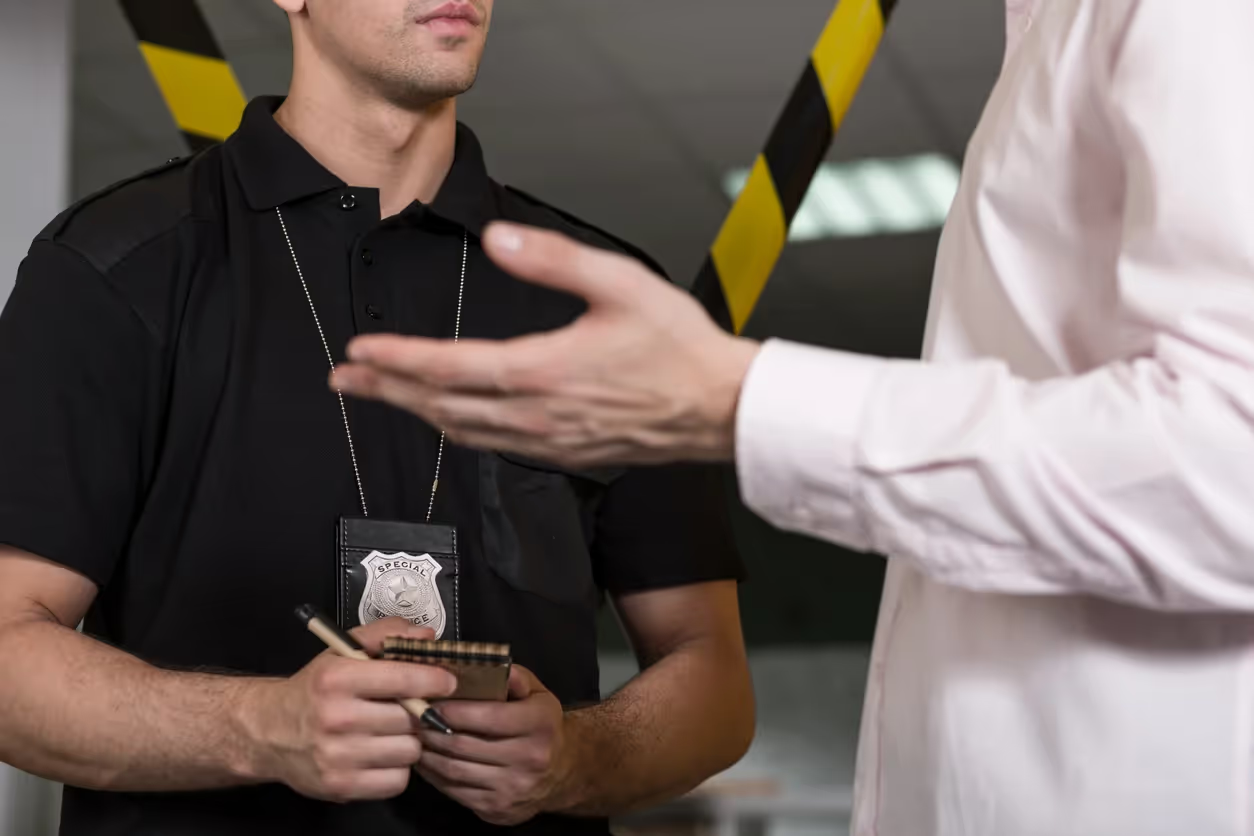
Facing police questioning can feel overwhelming, and what you say or do during this time can significantly impact your case. Whether you're being investigated or asked questions, it is crucial to understand how to protect yourself. If you have been charged with a crime in Phoenix, Arizona, please contact Chad Pajerski for expert legal defense.
Chad Pajerski is a highly experienced criminal defense attorney in Phoenix, Arizona, known for his expertise in handling complex criminal cases. With decades of experience and a Board Certificatied Specialist designation in Criminal Law, Chad has successfully defended clients in a wide range of situations, including police interrogations. His in-depth knowledge and commitment to protecting his clients' rights make him a top choice for anyone facing criminal charges. Attorney Chad Pajerski offer’s to share his knowledge and experience in this step-by-step guide to help you navigate police interrogations effectively.
A police interrogation is a formal questioning process where officers attempt to gather information or confessions about a potential crime. The environment can be tense, and the officers may use tactics to get you to talk. Learning what to expect helps you remain calm and assertive during the process.
Interrogations often take place in controlled environments, such as police stations or interview rooms, where the officers have the advantage of setting the tone. The atmosphere can be intimidating, and officers might use psychological tactics to make you feel vulnerable. They may present themselves as either friendly or forceful, depending on the strategy they think will get you to talk. Understanding this can help you stay focused and avoid making mistakes.
You have important rights designed to protect you during police questioning. These include your Miranda rights, which inform you of your right to stay silent and to have a lawyer. These rights come from the Fifth and Sixth Amendments to the U.S. Constitution.
The police must tell you these rights before questioning you if you are under arrest. If they don't, anything you say may not be admissible in court. It's also important to understand that these rights are not automatically effective—you need to clearly invoke them by telling the officers. If you want to stay silent or have a lawyer, you must explicitly state this to the police. Silence alone may not be enough to invoke your rights.
If the police are questioning you, here are the steps you should take to ensure you're protected:
Police officers may use different tactics to make you feel pressured into talking. Here are some common strategies they might use and how to respond:
If the police fail to read you your rights, or if they ignore your request for a lawyer, anything they obtain from you during questioning may not be used in court. This includes any admissions or confessions you make. However, the prosecution might still try to use other evidence if it can be shown that it was obtained independently of your statements.
It is also possible that the police might try to use the information you provided without Miranda warnings to lead them to other evidence. This concept is known as the "fruit of the poisonous tree" doctrine, meaning that if the source of the evidence (your statements) is tainted, any resulting evidence could also be inadmissible. An experienced lawyer can challenge these issues in court to protect your rights.
The best way to protect yourself during police questioning is to have an experienced criminal defense attorney by your side. A lawyer ensures that you don't accidentally incriminate yourself and that your rights are upheld throughout the process. Even if you believe you are innocent, the legal system can be complex, and having professional support is essential for your protection.
Having an attorney present can also prevent police from using high-pressure tactics or misleading statements to get you to talk. A lawyer can intervene if the police are overstepping their boundaries, ensuring that you are treated fairly and that your rights are respected.
While no one expects to be interrogated by the police, it is always helpful to be prepared. If you are ever approached by law enforcement, remember these key points:
At Pajerski Law, we have the experience needed to handle police interrogations and protect your rights. We understand that being questioned by the police can be a frightening experience, but you don't have to face it alone. If you are being questioned by the police or facing charges, contact us today for a consultation. We are committed to standing by your side and helping you through this challenging time with confidence and clarity.